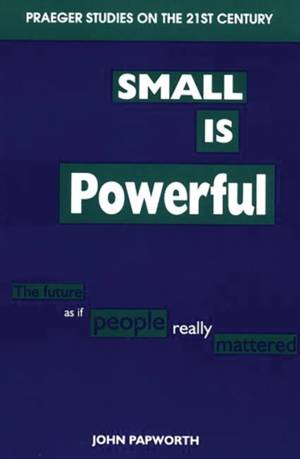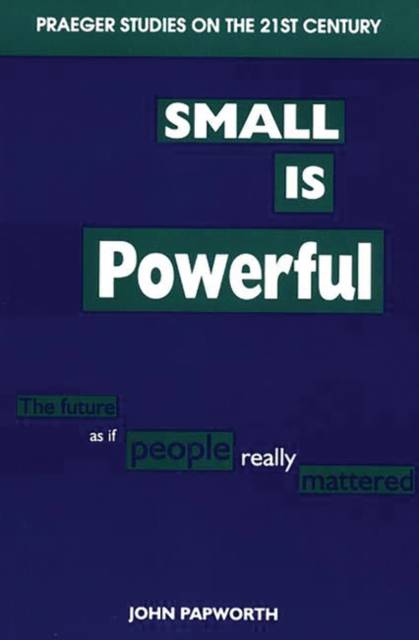
- Retrait gratuit dans votre magasin Club
- 7.000.000 titres dans notre catalogue
- Payer en toute sécurité
- Toujours un magasin près de chez vous
- Retrait gratuit dans votre magasin Club
- 7.000.0000 titres dans notre catalogue
- Payer en toute sécurité
- Toujours un magasin près de chez vous
Description
The author has found the true villain of the 20th century, and it is a concept--bigness. The answer to such disparate questions as why do we experience global wars, mass dictatorships, economic tornadoes, a population explosion and a mounting resource environment crisis lie, according to Papworth, far back in history. They are the direct result, he attempts to show, of the forces unleashed by the collapse in the 16th century of the laws against usury. Having diagnosed this problem as stemming from this destruction of the power of people to control their work, Papworth goes on to propound a new politics which is the politics of Small is Powerful--a new and hopeful approach to the problems of modern politics which merits the careful consideration of every person with any claim to political literacy.
The author asserts that the way forward is not bigger units of government or, indeed, in any other units, but rather that all units which represent power in whatever form should be reduced to a size which makes them susceptible to genuine democratic citizen control. Mass society must be dismantled, local communities must be rebuilt in their stead, but above all people must take the power back that they have lost to the Giant State. Giant States have failed their inhabitants, Papworth contends, with records on human rights, economic well-being, and on general stability inferior to the records of the smaller nations of Europe. The way forward, according to Small is Powerful, is to restore localized community life, the extended family, the nuclear family, and thereby civilization itself through deliberately empowering people through neighborhood communities.Spécifications
Parties prenantes
- Auteur(s) :
- Editeur:
Contenu
- Nombre de pages :
- 248
- Langue:
- Anglais
- Collection :
Caractéristiques
- EAN:
- 9780275954246
- Date de parution :
- 24-10-95
- Format:
- Livre relié
- Format numérique:
- Genaaid
- Dimensions :
- 152 mm x 229 mm
- Poids :
- 530 g

Les avis
Nous publions uniquement les avis qui respectent les conditions requises. Consultez nos conditions pour les avis.






